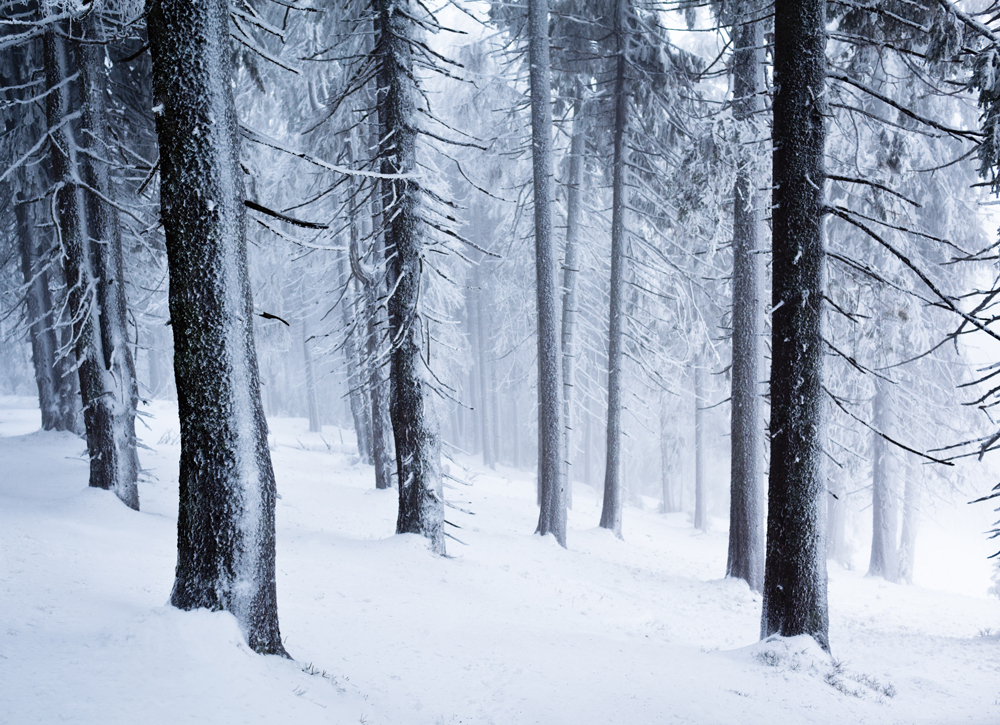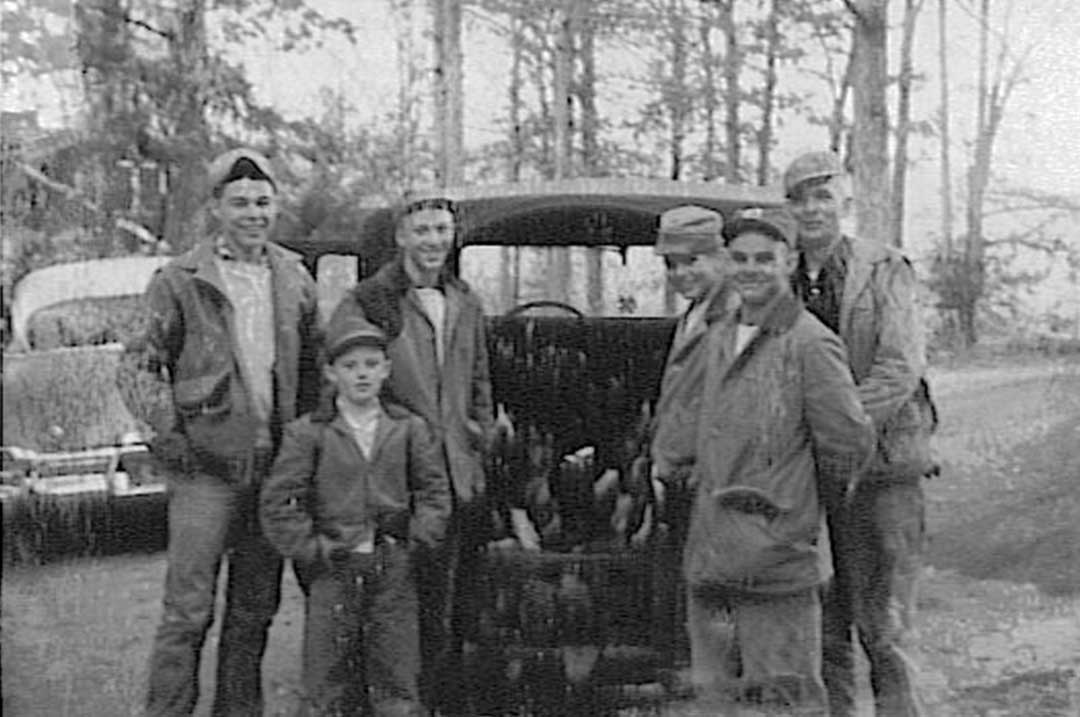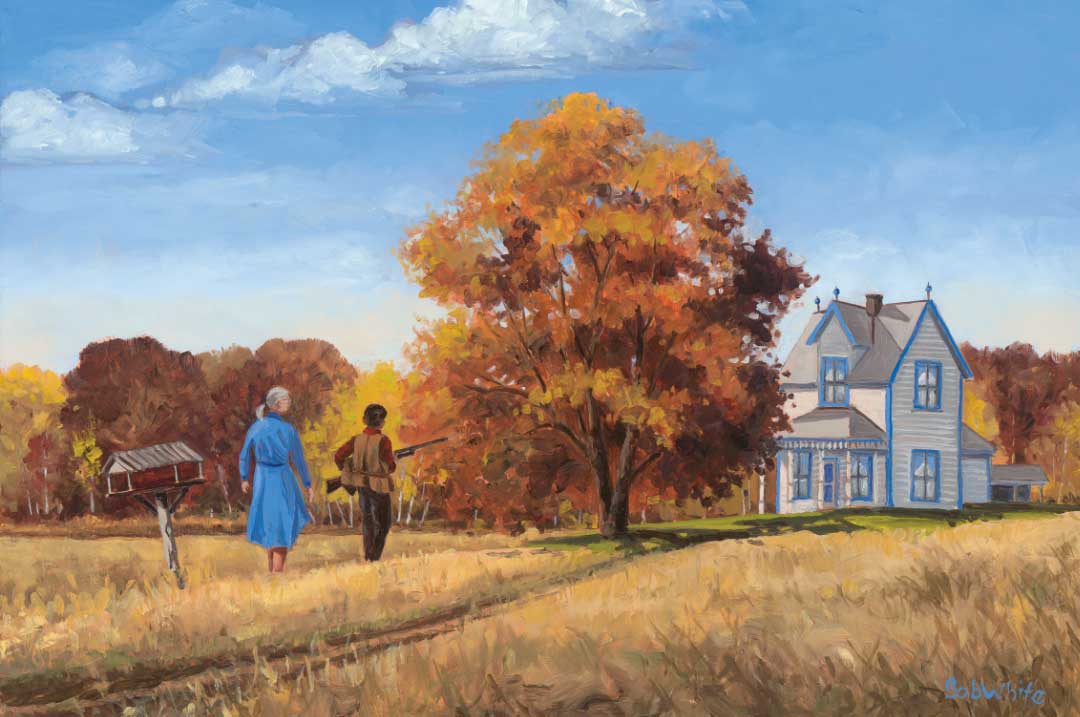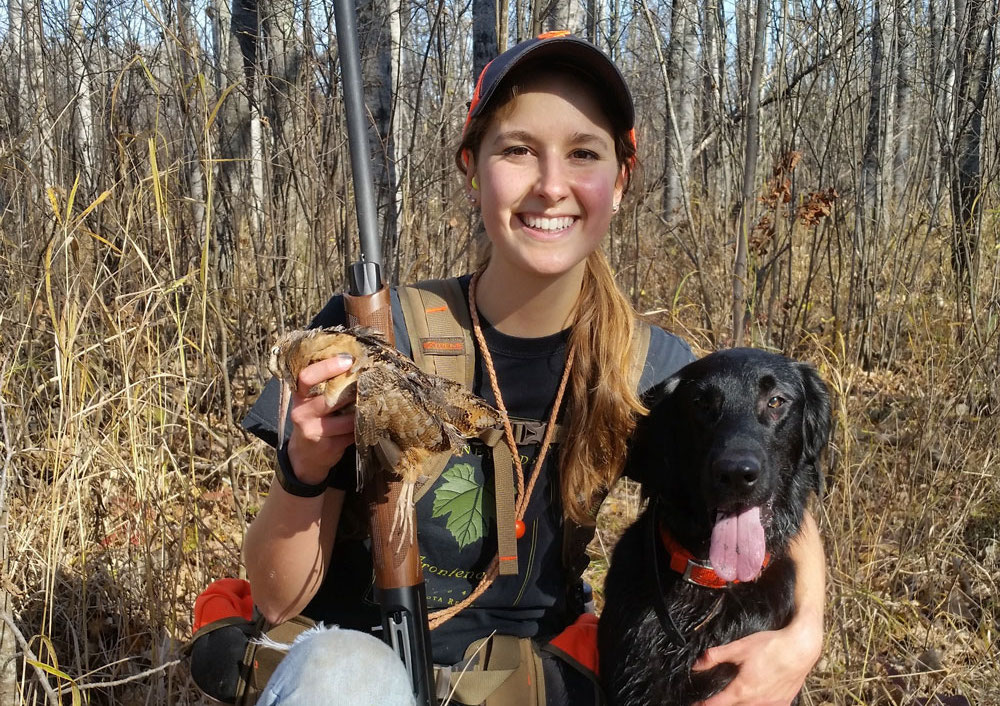A chapter from Woodcock’s Fifty Years a Hunter and Trapper, published in 1913.
One writer contends that the pocket compass is but very little use to a man in a dense forest. This, I think, depends largely upon circumstances. While I have spent a good portion of 50 years almost continuously in the woods, I have seldom found it necessary to use a compass to guide me out. This is due partly to the natural faculty of locating any particular place. This faculty of locating any certain place or point by giving or knowing the proper direction to take after one has traveled all day or for several days in the woods, I am inclined to credit to a sort of natural instinct.
I have often thought of the story of the Indian who was met by a man in the woods who asked the Indian if he was lost. The reply was, “No, me ain’t lost, wigwam lost, me here.” I can say without boasting that it is seldom that the camp or a given point gets lost with me, while it is not an uncommon occurrence for me to get lost or rather bothered in a strange locality. But after a moment’s thought, I say the camp or the point I wish to reach is in that direction, and it is not often that I miss my calculation.
As I have had several occasions to search for parties lost in the woods, I wish to relate a particular instance of one man who was lost, in order to illustrate that those who are lost lose their heads as soon as they find that they do not know where they are.
If you do lose your course or get bothered in your bearings, do not lose your head, for if you do you really are lost, but keep cool and keep your head. Sit down and fill your pipe, and while you smoke draw a map of the country carefully in your mind, and almost invariably you will locate yourself and, in so doing, will locate the camp.
To get back to the lost man in question, whose name was Amos Fish and, at the time, was the proprietor of the Cherry Springs Hotel. This hotel was located in the heart of the largest forest in Pennsylvania, and originally was a great resort for hunters from all over the state as well as southern and western New York. (The time of which I write was somewhere in the 1860s—have forgotten exact date.) There were several men boarding at this hotel, and my uncle and myself were among the number boarding with Mr. Fish, hunting, as were other boarders. This hotel stood in the center of a field containing perhaps 80 acres of cleared land, and there was not another clearing or a building within a distance of seven miles.
One morning after there had been a fall of four or five inches of snow, which made fine tracking, Mr. Fish thought he would go out and try to kill a deer. He left the house going through the field in nearly a due-east course. After going about one mile, he crossed a stream which ran in a north and south direction. Mr. Fish had fished this stream for trout many a time. After crossing this stream, Mr. Fish crossed a broad ridge and went on to a small stream known as the Sunken Branch, a tributary of the stream Mr. Fish had previously crossed. Now Mr. Fish was fairly well acquainted with the location which he was in, but in his search for deer he had got a little mixed in his whereabouts and at once lost his head.
My uncle, when coming in from hunting that evening, crossed Mr. Fish’s track on the ridge near the head of the Sunken Branch and heard him shoot several times, but supposed that he was shooting at deer. When the hunters all got in that night and Mr. Fish failed to appear, the matter was discussed by the hunters from all points of view. It was generally thought that Mr. Fish had killed a deer and been detained in dressing and hanging it up, or that he had wounded a deer and been led a long way from home in getting it.
When it got well along in the evening and Mr. Fish failed to come in, then it was feared that he had met with some misfortune. No one would believe that he was lost, as it was known that he was pretty well acquainted with the woods in the direction that he had been known to take. But as the time went on and still Mr. Fish did not come, we all began to fear for his safety, as the night was very cold, so every few minutes someone would go out and fire a gun. This was continued all night, though there was no answer.
My uncle and myself had an early breakfast and started some time before daybreak for the locality in which he had seen Mr. Fish’s tracks and heard gunshots, which were thought to have been fired by him. Shortly after daybreak we found the track of a man which we could readily see had been made during the night. After following the track some distance, we were convinced that we were following the track of Mr. Fish and that he was lost, for his tracks would go in a zigzag sort of circle and recross his previously made tracks.
After we had followed Mr. Fish’s track for an hour or longer, we saw him coming nearly towards us with his hat in his hand. We stood still, and he came close to us before he seemed to notice us. He had no gun, and when he stopped he stared at us and did not seem to know us.
Uncle then spoke to him and said, “Amos, what is the matter? Are you lost?” Mr. Fish replied that he wanted to go to the Cherry Springs Hotel. In a few minutes, after eating a good lunch which we had carried with us for that purpose, he seemed to know us.
When questioned as to what he had done with his gun, he apparently had forgotten that he ever had a gun. But after a time he seemed to remember the gun in a vague sort of way and said that he must have left it by a tree, but he could not tell in what direction the tree was. After a search of a half-hour we found the gun standing by a tree that, apparently, Mr. Fish had traveled around for some time.
When we came to the creek on our way to the house, at the place where Mr. Fish had crossed it the morning before, he asked what stream it was. When told that it was the place where he had crossed the creek the morning before, and when asked if he did not remember the creek, as he had fished there many a time, he said that he had no recollection of ever seeing the stream before. Shortly we came out into the field, and Mr. Fish did not know his own house, asked who lived there, and did not seem to recognize it until he had been inside the house for several minutes with his family.
I have related this instance of Mr. Fish to show how necessary it is for one who has got slightly mixed in his course to keep cool and not allow himself to become excited. If he does, he immediately loses his head and is at once lost.
In the case of Mr. Fish, he was at no time more than four miles from his house and was quite familiar with the ground he was on during the whole time. He was lost while following the deer that he was in pursuit of, which led him into a windfall perhaps containing 100 acres. It was while in this that he became bothered as to the right course to go to his house. He at once lost his head, or more proper, his reasoning faculties, and became lost.
Mr. Fish was east of the ridge and road, and as he had a compass, all there was for him to do was to consult the compass and go west to the road. But Mr. Fish declared that his compass would not work (he might have held the compass so close to the gun barrel that the compass did not work properly).
Yes, boys, if anyone is in the habit of getting lost, the pocket compass is a very useful instrument in finding the way, providing it is properly used. Let me say, however, that no matter how often “the shanty gets lost,” don’t lose your head, for if you do, the compass will do you no good.
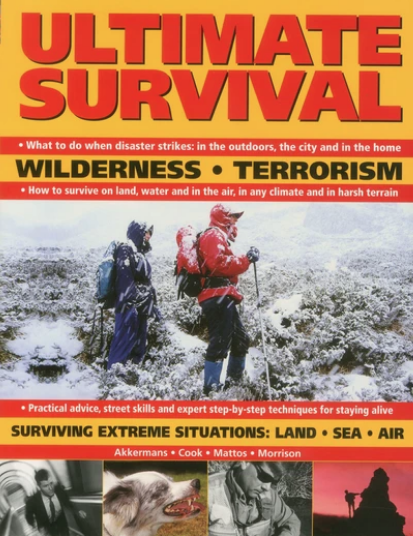 What to do when disaster strikes: in the outdoors, the city and in the home; how to survive on land, water and in the air, in any climate and in harsh terrain. This large and very detailed book offers practical advice, street know-how and step-by-step techniques for staying alive – with 1100 photographs and illustrations showing tactics, and 80 training projects for extreme life skills to use in emergencies.
What to do when disaster strikes: in the outdoors, the city and in the home; how to survive on land, water and in the air, in any climate and in harsh terrain. This large and very detailed book offers practical advice, street know-how and step-by-step techniques for staying alive – with 1100 photographs and illustrations showing tactics, and 80 training projects for extreme life skills to use in emergencies.
It also deals with self-sufficiency in the wild: survival skills and bushcraft techniques, tools, equipment and medical emergencies. Also includes: coping when everyday situations become life-threatening: surviving as a hostage; self-protection and street skills; danger at home; the do’s and don’ts of being a tourist. It offers expert advice to help you avoid hazardous situations, and respond positively to confrontation. This is the ultimate guide to survival. The tactics, skills and tricks of the trade taught in this professional survivors’ manual could save your life.

